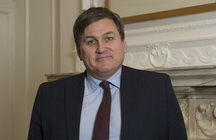Below is the text of the statement made by Kit Malthouse, the Minister for Crime, Policing and the Fire Service, in the House of Commons on 27 January 2020.
The Government are supporting the police and empowering them with the tools they need to deliver on the people’s priorities by cutting the crime that is blighting our communities. We have already pledged 20,000 more officers, new powers and the biggest funding increase in a decade, but embracing new technology is also vital and we support the use of live facial recognition, which can help to identify, locate and arrest violent and dangerous criminals who may otherwise evade justice.
Live facial recognition compares the images of people passing a camera with a specific and predetermined list of those sought by the police. It is then up to officers to decide whether to stop and speak to those flagged as a possible match. This replicates traditional policing methods such as using spotters at a football match. The technology can make the search for suspects quicker and more effective, but it must be used strictly within the law.
The High Court has found that there is an appropriate legal framework for the police use of live facial recognition, and that includes police common-law powers, data protection and human rights legislation, and the surveillance camera code. Those restrictions mean that sensitive personal data must be used appropriately for policing purposes, and only where necessary and proportionate. There are strict controls on the data gathered. If a person’s face does not match any on the watchlist, the record is deleted immediately. All alerts against the watchlist are deleted within 31 days, including the raw footage, and police do not share the data with third parties.
The Metropolitan Police Service informed me of its plans in advance, and it will deploy this technology where intelligence indicates it is most likely to locate serious offenders. Each deployment will have a bespoke watchlist made up of images of wanted people, predominantly those wanted for serious and violent offences. It will also help the police to tackle child sexual exploitation and to protect the vulnerable. Live facial recognition is an important addition to the tools available to the police to protect us all and to keep murderers, drug barons and terrorists off our streets.
